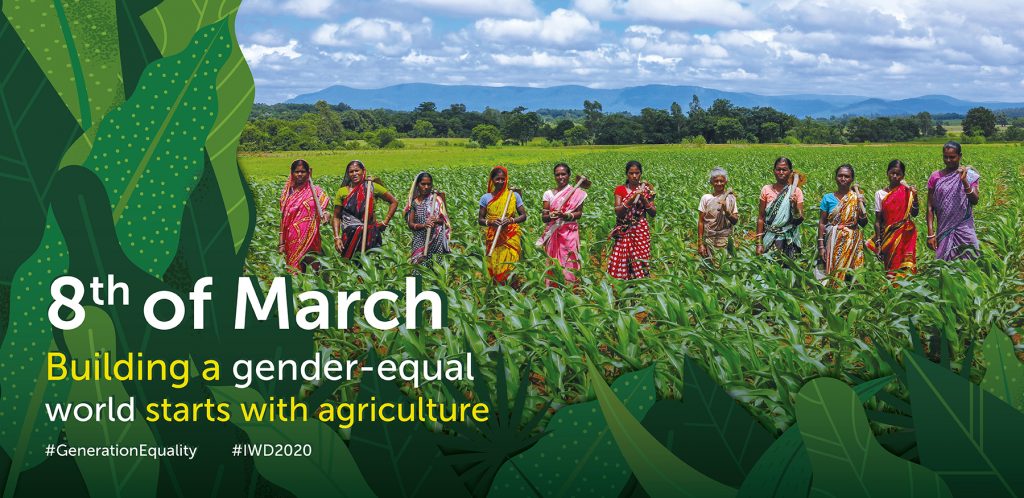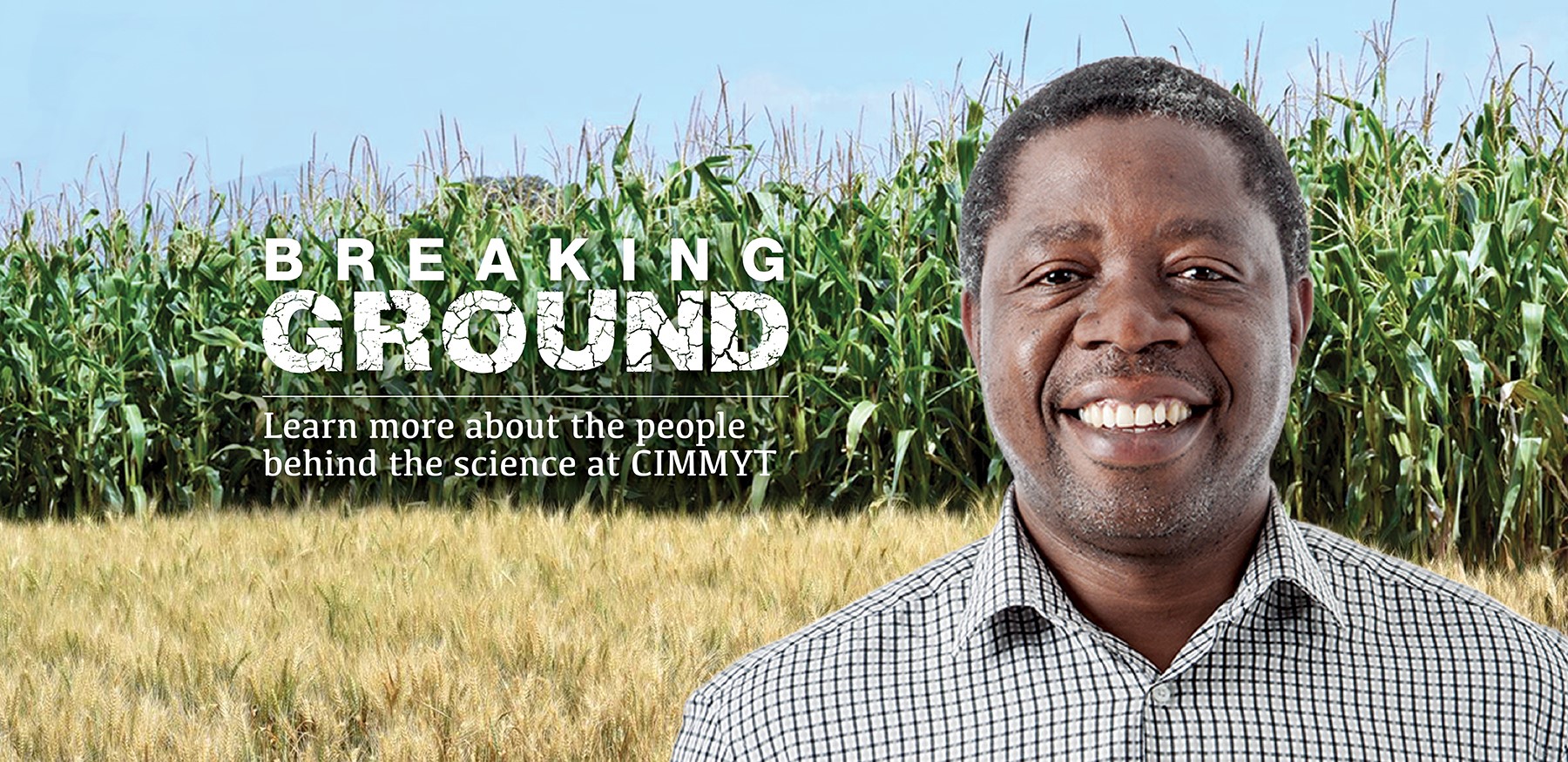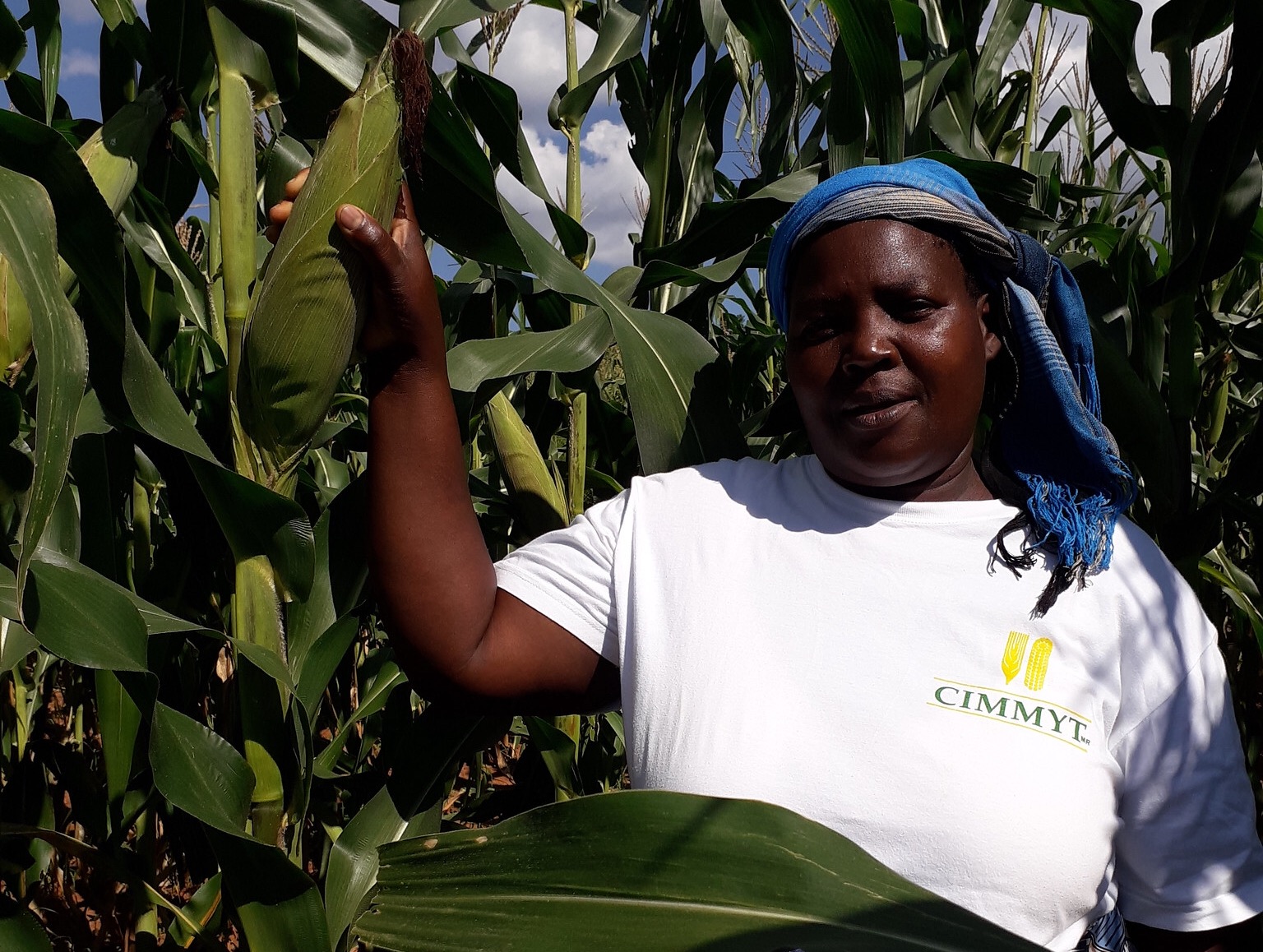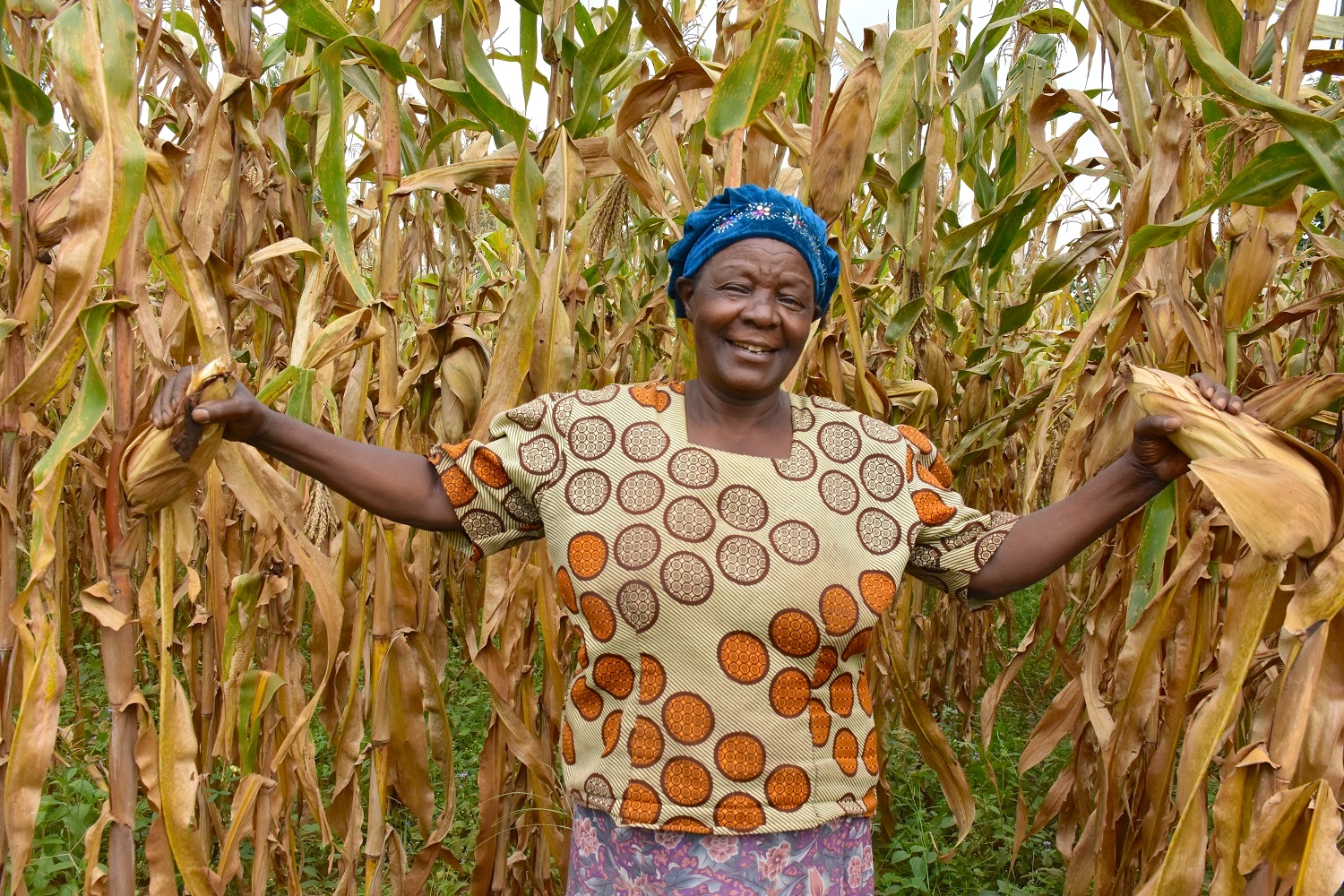Sixteen years of consistent learning and practice of climate-smart agriculture, led by the International Maize and Wheat Improvement Center (CIMMYT), are paying off for Luganu Mwangonde. Together with her husband Kenson, she has established herself as a successful smallholder farmer in Malawi’s Balaka district. She enjoys the multiple benefits of high yields from diverse crops, surplus to sell at the markets and improved soil quality.
“I started practicing the farming that does not demand too much labor back in 2004,” she explains at her 2.5-acre farm. “Over the years the process has become easier, because I have a full understanding of the benefits of techniques introduced through the project.”
In Malawi’s family farms, women often carry the burden of land preparation and weeding in the fields while juggling household responsibilities, contributing to widen gender differences already prevalent in the community.
Mwangonde observes that learning climate-smart techniques — such as minimum tillage, mulching and planting on flat land surfaces — has given her an advantage over other farmers practicing conventional agriculture.
Better off
At the beginning, like other farmers in the area, Mwangonde thought conservation agriculture and climate-smart techniques required a lot of work, or even hiring extra labor. As she tried this new approach, however, weed pressure in her plot decreased gradually, with the help of mulching and other techniques, and the labor required to maintain the fields reduced significantly. This allowed her to have extra time to add value to her products and sell them on the markets — and to rest.
The best gain for her is knowing that her family always has enough to eat. “I have enough grain to last until the next harvest,” she says. “My husband and I can provide for our seven children and four grandchildren.” During the 2018/19 season, Mwangonde’s family harvested six bags of maize, two bags of pigeon pea and four bags of groundnuts. The surplus from the harvest is reserved for later, when prices are more competitive.
“I am an equal partner in the farming activities. That means I can make decisions about how we work on our plot, distribute crops and apply everything that I have learnt about conservation agriculture,” Mwangonde explains. She has participated in CIMMYT activities where she could share her experiences on climate-smart agriculture with other women. As a lead farmer, she notes, she can confidently inspire the next generation of smallholders because of the empowering knowledge she has acquired.
Out of the 3,538 smallholder farmers from Balaka, Machinga and Zomba districts, up to 2,218 are women smallholder farmers who have successfully adopted climate-smart technologies.
Mwangonde is one of the beneficiaries of the Africa Research in Sustainable Intensification for the Next Generation (Africa RISING) project. She also benefitted from the support of the German Development Agency (GIZ), the International Fund for Agricultural Development (IFAD), Total Land Care (TLC) and the United States Agency for International Development (USAID).


 Climate adaptation and mitigation
Climate adaptation and mitigation 
